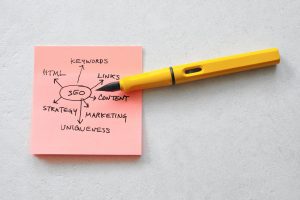Professions at Risk from Artificial Intelligence (AI) Development

Artificial Intelligence (AI) is a field of technological development that has a significant impact on our daily lives. AI has brought about major changes in how we do our work and has made considerable advancements in many industries. However, due to the rapid progress of AI, there are several professions that are at risk of being disrupted or fundamentally altered. But what are the challenges and opportunities associated with the changes AI is bringing?
According to a report by the World Economic Forum, around 85 million jobs in the service sector could disappear by 2025 as a result of automation and AI advancements.
World Bank studies have shown that workers in the manufacturing and construction sectors are exposed to the risk of job loss due to the use of robots and AI technologies.
The McKinsey Global Institute has estimated that around 50% of tasks performed by workers in various professions could be replaced by automation and AI in the coming years.
Which professions are at risk of being eliminated as a result of AI?
Healthcare:
Healthcare professions are at risk of being affected by AI. With the advancement of artificial intelligence in medical technology, intelligent machines and robots can replace some of the tasks performed by doctors and nurses. AI diagnosis systems and robotic surgery are being developed more and more, creating opportunities to reduce the need for humans in certain aspects of healthcare.
Financial Services:
In the finance sector, AI has changed the way analyses, risk modeling, and portfolio management are done. AI algorithms can replace the expertise of financial specialists in certain decision-making, investment, and risk management aspects. Security and privacy challenges are also significant concerns for the finance sector when using AI technologies.
Transportation:
With the advancement of self-driving and autonomous vehicles, professions related to transportation are at risk. Truck drivers, taxi drivers, and transportation operators may face job market challenges as a result of autonomous machine intervention. However, there may be opportunities to create new jobs in the field of self-driving technology development and maintenance.
Legal Field:
AI has the potential to automate certain legal tasks, such as case analysis and legal document drafting. This could impact the professions of lawyers and legal practitioners, requiring a reassessment of their roles and the skills they need to provide added value in a creative manner.
Journalism:
The automation of news production and writing can impact the professions of journalists. Artificial intelligence can generate news quickly, sidelining the need for many traditional journalists.
Banking and Investment Analysts:
AI can replace some parts of the tasks performed by bankers and investment analysts, using algorithms and machine learning to make informed decisions regarding clients’ investments and portfolios.
Personal Assistants:
AI has the potential to provide personalized and automated assistance through virtual assistants and chatbots. This could affect the professions of personal assistants, reducing the need for such positions.
Market Prediction and Financial Analysts:
The use of AI algorithms to predict market developments and perform financial analysis can jeopardize the professions of financial analysts and economists, requiring them to develop new skills and specialize in other areas of finance.
Architecture and Design:
AI has the potential to assist in building design and architecture. This can impact the professions of architects and designers, requiring them to adapt and use AI technology to fulfill their goals.
Content Creation:
With the advancement of AI, automatic content creation poses a challenge to professions such as writers, journalists, graphic designers, and other artists. AI can produce articles, graphics, and other content rapidly and accurately, sidelining the need for traditional creators.
Product Design and UX/UI:
AI can also impact the professions of product designers and UX/UI designers (user experience/user interface). The use of AI technologies can change how products and applications are designed and used by users.
Publishing Houses and Booksellers:
The automation of publishing processes and book sales through AI platforms can impact the professions of librarians and book retailers, requiring them to develop new skills to offer personalized experiences and identify reading trends.
In general, the advancement of AI is causing major changes in the job market and professions in many fields. It is important for individuals to be prepared and adapt to these changes by developing their skills and finding new ways to create value and contribute effectively in their professional fields.
Share the article:


